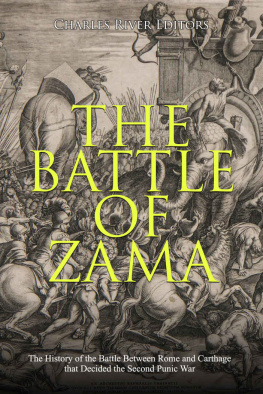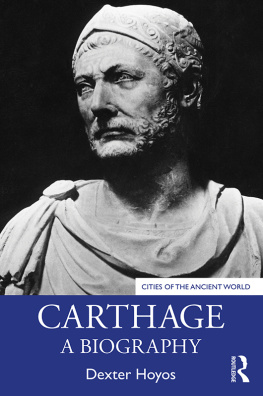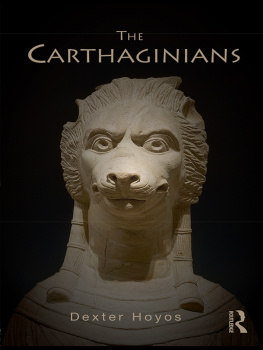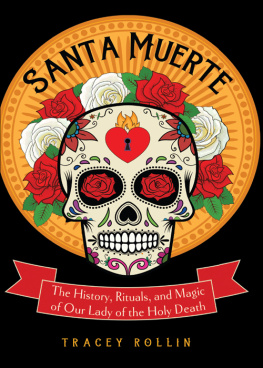CARTHAGE FORMED AFTER THE MODEL of Tyre, of which that City was a Colony. The Carthaginians were indebted to the Tyrians, not only for their origin, but for their manners, language, customs, laws, religion, and their great application to commerce, as will appear from every part of the sequel. They spoke the same language with the Tyrians, and these the same with the Canaanites and Israelites, that is, the Hebrew tongue, or at least a language which was entirely derived from it. Their names had commonly some particular meaning: thus Hanno signified gracious, bountiful; Dido, amiable, or well-beloved; Sophonisba, one who keeps faithfully her husbands secrets. From a spirit of religion, they likewise joined the name of God to their own, conformably to the genius of the Hebrews. Hannibal, which answers to Hananias, signifies Baal, [or the Lord] has been gracious to me. Asdrubal, answering to Azarias, implies, the Lord will be our succor. It is the same with other names, Adherbal, Maharbal, Mastanabal, &c. The word Pni, from which Punic is derived, is the same with Phni, or Phnicians, because they came originally from Phnicia. In the Pnulus of Plautus, is a scene written in the Punic tongue, which has very much exercised the learned.
But the strict union which always subsisted between the Phnicians and Carthaginians, is still more remarkable. When Cambyses had resolved to make war upon the latter, the Phnicians, who formed the chief strength of his fleet, told him plainly that they could not serve him against their countrymen; and this declaration obliged that prince to lay aside his design. The Carthaginians, on their side, were never forgetful of the country from whence they came, and to which they owed their origin. They sent regularly every year to Tyre a ship freighted with presents, as a quit-rent, or acknowledgment paid to their ancient country; and an annual sacrifice was offered to the tutelar gods of Tyre, by the Carthaginians, who considered them as their protectors likewise. They never failed to send thither the first fruits of their revenues, nor the tithe of the spoils taken from their enemies, as offerings to Hercules, one of the principal gods of Tyre and Carthage. The Tyrians, to secure from Alexander (who was then besieging their city) what they valued above all things, I mean their wives and children, sent them to Carthage, where, though at a time when the inhabitants of the latter were involved in a furious war, they were received and entertained with such a kindness and generosity as might be expected from the most tender and opulent parents. Such uninterrupted testimonies of a warm and sincere gratitude, do a nation more honor, than the greatest conquests and the most glorious victories.
The Religion of the Carthaginians.
It appears from several passages of the history of Carthage, that its generals looked upon it as an indispensable duty, to begin and end all their enterprises with the worship of the gods. Hamilcar, father of the great Hannibal, before he entered Spain in a hostile manner, offered up a sacrifice to the gods; and his son, treading in his steps, before he left Spain, and marched against Rome, went as far as Cadiz, in order to pay the vows which he had made to Hercules, and to offer up new ones, in case that god should be propitious to him. After the battle of Cann, when he acquainted the Carthaginians with the joyful news, he recommended to them, above all things, the offering up a solemn thanksgiving to the immortal gods, for the several victories he had obtained. Pro his tantis totque victoriis verum esse grates diis immortalibus agi haberique.
Neither did individuals alone pride themselves upon displaying, on every occasion, this religious care to honor the deity; but it evidently was the genius and disposition of the whole nation.
Polybius has transmitted to us a treaty of peace concluded between Philip, son of Demetrius, king of Macedon, and the Carthaginians, in which the great respect and veneration of the latter for the deity, and their inherent persuasion that the gods engage in, and preside over, human affairs, and particularly over the solemn treaties made in their name and presence, are strongly displayed. Mention is therein made of five or six different orders of deities; and this enumeration appears very extraordinary in a public instrument, such as a treaty of peace concluded between two nations. I will here present my reader with the very words of the historian, as it will give some idea of the Carthaginian theology. This treaty was concluded in the presence of Jupiter, Juno, and Apollo; in the presence of the dmon or genius () of the Carthaginians, of Hercules and Iolaus; in the presence of Mars, Triton, and Neptune; in the presence of all the confederate gods of the Carthaginians; and of the sun, the moon, and the earth; in the presence of the rivers, meads, and waters; in the presence of all those gods who possess Carthage: what should we now say to an instrument of this kind, in which the tutelar angels and saints of a kingdom should be introduced?
The Carthaginians had two deities to whom they paid a more particular worship, and who deserve to have some mention made of them in this place.
The first was the goddess Clestis, called likewise Urania, the same with the moon, who was invoked in great calamities, and particularly in droughts, in order to obtain rain: that very virgin Clestis, says Tertullian, the promiser of rain, Ista ipsa Virgo Clestis pluviarum pollicitatrix. Tertullian, speaking of this goddess and of sculapius, makes the heathens of that age a challenge, which is bold indeed, but at the same time very glorious to the cause of Christianity; declaring, that any Christian who may first come, shall oblige these false gods to confess publicly, that they are but devils; and consenting that this Christian shall be immediately killed, if he does not extort such a confession from the mouth of these gods. Nisi se dmones confessi fuerint Christiano mentiri non audentes, ibidem illius Christiani procacissimi sanguinem fundite. St. Austin likewise makes frequent mention of this deity. What is now, says he, become of Clestis, whose empire was once so great in Carthage? This was doubtless the same deity whom Jeremiah calls the queen of heaven; and who was held in so much reverence by the Jewish women, that they addressed their vows, burnt incense, poured out drink-offerings, and made cakes for her with their own hands, ut faciant placentas regin cli; and from whom they boasted their having received all manner of blessings, whilst they regularly paid her this worship; whereas, since they had failed in it, they had been oppressed with misfortunes of every kind.












